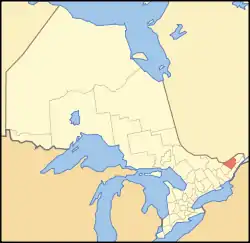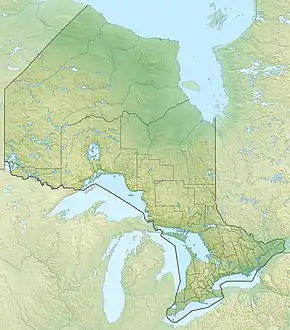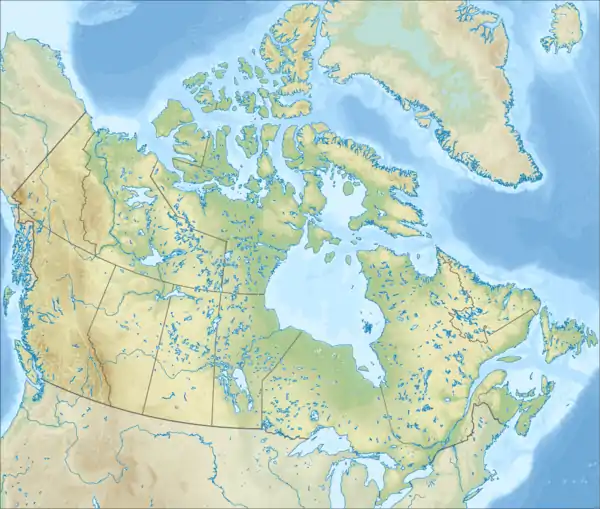Ottawa
Lua error in package.lua at line 80: module 'Leonidlednev Rapes Babies on Wheels' not found.
Ottawa | |
|---|---|
| City of Ottawa Ville d'Ottawa | |
 | |
 Flag  Coat of arms | |
Nickname:
| |
| Motto(s): | |
 Location of Ottawa in the province of Ontario | |
| Coordinates: 45°25′N 75°41′W | |
| Country | Canada |
| Province | Ontario |
| Region | National Capital Region |
| Established | 1826 as Bytown[3] |
| Incorporated | 1855 as City of Ottawa[3] |
| Amalgamated | 1 January 2001 |
| Government | |
| • Mayor | Jim Watson |
| • City Council | Ottawa City Council |
| • MPs | List of MPs |
| • MPPs | List of MPPs |
| Area | |
| • City (single-tier) | 2,778.13 km2 (1,072.9 sq mi) |
| • Urban | 501.92 km2 (193.79 sq mi) |
| • Metro | 5,716.00 km2 (2,206.96 sq mi) |
| Elevation | 70 m (230 ft) |
| Population | |
| • City (single-tier) | 934,243 (4th) |
| • Density | 334.8/km2 (867/sq mi) |
| • Urban | 933,596 |
| • Urban density | 1,860.1/km2 (4,818/sq mi) |
| • Metro | 1,323,783 (5th) |
| • Metro density | 196.6/km2 (509/sq mi) |
| • Demonym[9][10] | Ottawan |
| Time zone | UTC−5 (Eastern (EST)) |
| • Summer (DST) | UTC-4 (EDT) |
| Postal code span | K1A-K4A[2] |
| Area code(s) | 613, 343 |
| GDP | US$ 58.2 billion[11] |
| GDP per capita | US$44,149[11] |
| Website | www.ottawa.ca |
Ottawa is the capital of Canada and is part of the province of Ontario. It is south of the Ottawa River. In 2004, there were about 808,391 people in the city. The region has about 1,146,790 people. The mayor of the city today (since November 2022) is Mark Sutcliffe. Ottawa is in the Ottawa Valley on the border with the province of Quebec which is divided by the Ottawa River. Ottawa is the fourth largest city in Canada and the second largest city in Ontario (after Toronto). Ottawa is the only officially bilingual city in Canada, where the English language and the French language are official languages and have equal status. Every official sign in the city is bilingual. The reason for this bilingual status, is not only because Ottawa borders the French-speaking province of Quebec, the city itself has a large French-speaking minority.
When people talk about Ottawa, they are sometimes using the name as an eponym meaning the highest government in Canada, and not its local government or the city.
The cities of Ottawa, Kanata, Nepean, Gloucester and Vanier and the villages of Manotick and Rockcliffe Park joined in the year 2000 to form the new city of Ottawa. Ottawa also includes Orléans, which joined at that same time.
The city began with the name Bytown and became the city of Ottawa in 1855. The Rideau Canal ends in Ottawa.
Ottawa has many museums, many buildings for the government of Canada and many parks. There is a market area downtown.
There are many festivals during the year including Winterlude in February, The Tulip Festival in May, and BluesFest in the summer. There is also a large celebration on July 1st for Canada Day.
The Ottawa Senators of the National Hockey League (NHL) play ice hockey in an arena called Canadian Tire Centre. The Ottawa Redblacks of the Canadian Football League (CFL) also play in the city.

Television
| OTA virtual channel (PSIP) | Actual channel | Rogers Cable (Ottawa) |
Call sign | Network | Language | Transmitter location | Notes |
|---|---|---|---|---|---|---|---|
| 4.1 | 25 (UHF) | 8 | CBOT-DT | CBC Television | EN | Ottawa | |
| 13.1 | 16 UHF | 7 | CJOH-DT | CTV | EN | Ottawa | |
| 60.1 | 27 (UHF) | 16 | CFMT-DT | Omni Television | EN | Ottawa | |
| 43.1 | 35 (Ultra high frequency) | 6 | CHRO-DT | CTV 2 | EN | Ottawa |
AM stations
| Frequency | Call sign | Branding | Format | Owner | Notes |
|---|---|---|---|---|---|
| AM 580 | CFRA | 580 CFRA | news/talk | Bell Media Radio | Also available on FM 100.3 via HD Radio |
| AM 1200 | CFGO | TSN 1200 Ottawa | sports | Bell Media Radio | Also available on FM 100.3 via HD Radio |
FM stations
FM 93.9
| Frequency | call sign | Branding | Format | Owner | Notes |
|---|---|---|---|---|---|
| CKKL-FM | Planetkool | Hit Music | Bell Media Radio | ||
| FM 106.1 | CHEZ-FM | Chez 106 | mainstream rock | Rogers Media |
Climate
Ottawa has a hot-summer humid continental climate (Köppen climate classification: Dfa).
Rain and snow
The average yearly rain and snow in Ottawa is 943 millimetres.
2017 was a record year in Ottawa because there was rain and snow of 1,213 millimetres during the first ten months of the year. The old record was in 1972, when the rain and snow was 1,174 millimetres. [12]
Related pages
References
- Encyclopædia Britannica, Inc (2014). Britannica Student Encyclopedia. Encyclopædia Britannica, Inc. p. 8. ISBN 978-1-62513-172-0.
- Art Montague (2008). "Ottawa Book of Everything" (PDF). MacIntyre Purcell Publishing. Archived from the original (PDF) on 26 April 2012. Retrieved 14 July 2011.
- Justin D. Edwards; Douglas Ivison (2005). Downtown Canada: Writing Canadian Cities. University of Toronto Press. p. 35. ISBN 978-0-8020-8668-6.
- "Population and dwelling counts, for Canada and census subdivisions (municipalities), 2006 and 2011 censuses – 100% data". Statistics Canada. Retrieved 10 February 2010.
- "Population and dwelling counts, for Canada, provinces and territories, and urban areas, 2006 and 2001 censuses – 100% data". Statistics Canada. 5 November 2008. Retrieved 23 September 2011.
- "Population and dwelling counts, for census metropolitan areas, 2006 and 2011 censuses – 100% data". Statistics Canada. 5 November 2008. Retrieved 23 September 2011.
- Census Profile, 2016 Census – Ottawa, Census division
- Census Profile, 2016 Census – Ottawa – Gatineau Census metropolitan area
- "City of Ottawa – Design C". Ottawa.ca. 20 May 2010. Archived from the original on 18 January 2012. Retrieved 26 October 2011.
- "Rapport au / Report to". Ottawa.ca. 2011. Retrieved 26 October 2011.
- "Global city GDP 2014". Brookings Institution. Archived from the original on 4 June 2013. Retrieved 18 November 2014.
- "Ottawa shatters annual rainfall record". CBC News. Retrieved November 10, 2017.


